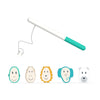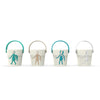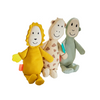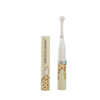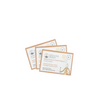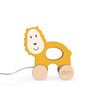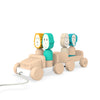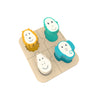A Guide to Your Baby’s Mental Health
Mental health might seem like an adults’ game, but you may be surprised to find out that it is of equal importance for young children and babies! Good mental health for babies looks like feeling safe and secure in their environments, as well as being loved by those around them - and these are quite easily achieved! Read on for our guide to keeping an eye on your child’s mental health, and how you can help to ensure that they’re happy and healthy!
- Look for the Signs
How can you know if your baby is unhappy, beyond being hungry or tired in the moment? Look out for inconsolable crying, eye-contact avoidance, withdrawal from call and response with their parents or guardians, persistently difficult behaviour (including tantrums, biting, and kicking) and other sudden changes in mood or personality. These may be signs that your child is in distress, and help to direct you toward making steps to ensure that they feel as loved and secure as possible.
- Spend Time Together
Perhaps the easiest and most obvious, but spending time together with your baby helps to form the important bonds that teach them about empathy, trust, and security. Take time to hold your child, make eye-contact, sing songs or chatter to them, and give them lots of positive physical touch like cuddles and kisses. Though these might seem to only be helpful in the moment, they actually build a strong set of positive associations for your infant, and can help to keep them happy and healthy in the long-run, too!
- Name Those Feelings
In both happy and more challenging moments, it can be helpful to label your child’s emotions. Naming feelings can help a young child to better organise and talk about their feelings (as their speech abilities progress). Difficult moments might wear you down and make you feel that this is pointless, but it truly does help in the long run, so keep at it!
- Get Reading
Reading books together with your child has a whole host of benefits, one of which is creating better understanding and empathy for others. Reading a book together at bedtime, making sure to pause to check comprehension and adding feelings through your tone of voice helps your baby to understand that their needs are similar to those of the people around them. If you’re looking for books with a focus on interaction and bonding, check out our Matchstick Monkey book, where you can not only help your child learn about feeling and emotions, but colours, too!
- Make Relaxation a Habit
Make the most of the time before bed to give your child a relaxing massage! Use sweet-scented products and low lighting to help them relax and feel soothed. For more information on how baby massage helps both your child’s and your own mental health, check out our previous blog!













